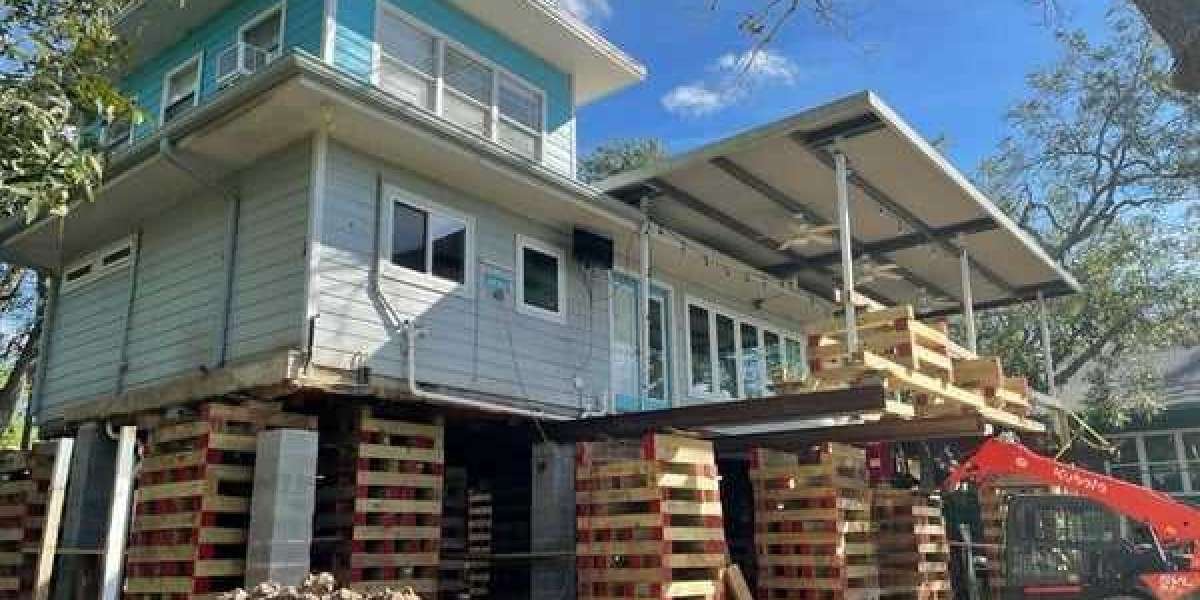When it comes to foundation repair solutions in Houston, concrete piers are among the most commonly used methods. This technique involves the installation of concrete columns under a home’s foundation to provide additional support, helping to stabilize the structure and prevent further settlement. Houston homeowners, dealing with issues like soil movement, shifting, or moisture changes, often find this solution beneficial. However, like any foundation repair method, there are both pros and cons to consider before choosing concrete piers. In this article, we’ll dive into these aspects to help you determine if concrete piers are the right choice for your foundation issues.
What Are Concrete Piers?
Concrete piers are pillars made from reinforced concrete that are installed deep into the ground beneath your home’s foundation. These piers are used to support the weight of the house by extending down to more stable soil or bedrock, which helps prevent further shifting or settling. This method is especially common in areas like Houston, where soil conditions—such as expansive clay—are prone to shifting due to moisture changes.
Pros of Concrete Piers
- Long-Lasting Solution
Concrete piers are known for their durability. When properly installed, they can last for decades. They are not susceptible to the same wear and tear that other foundation repair methods might face, especially in Houston’s unique climate. Their strength helps stabilize the foundation for the long term, reducing the need for frequent repairs. - Effective for Stabilizing Settling Foundations
One of the primary benefits of concrete piers is their ability to stabilize a settling foundation. Whether your foundation has sunk due to shifting soil, poor compaction, or moisture-related changes, concrete piers can lift and level your home, restoring the foundation’s stability. - Works Well in Houston's Soil Conditions
The expansive clay soil found in Houston can lead to significant foundation issues, especially during periods of heavy rain or drought. Concrete piers are effective in dealing with this shifting soil because they extend down to more stable layers of earth, offering the foundation the support it needs even in challenging conditions. - Minimal Disruption to Your Home
Unlike other repair methods that may require extensive excavation or disruption to your home, concrete piers can be installed with minimal interference. In most cases, the process is quick, and the structure of the home remains largely unaffected, making it a convenient choice for many homeowners. - Cost-Effective
While concrete piers can have an initial cost, they are often a more cost-effective solution than other foundation repair methods that might require more materials or extensive work. Additionally, the longevity of concrete piers reduces the need for future repairs, making them an economical option in the long run.
Cons of Concrete Piers
- Expensive Upfront Costs
One of the biggest drawbacks of concrete piers is their upfront cost. Installation can be expensive, especially for larger homes or those with more significant foundation issues. Homeowners may need to budget accordingly or explore financing options, as the cost of installation may range from several thousand dollars to even higher amounts, depending on the extent of the repairs. - Not Ideal for All Foundation Issues
While concrete piers are effective for many foundation problems, they are not always the best solution for every issue. For instance, if your foundation has severe cracking or damage that cannot be resolved through leveling alone, other methods such as underpinning or slab jacking might be required. It’s important to have a professional assess the extent of your foundation damage before opting for concrete piers. - Disruption During Installation
Though installation is typically less disruptive than other methods, there will still be some degree of disruption. The process requires digging holes around the foundation, which can affect the landscaping and may cause minor disturbances to your daily routine. - Potential for Over-Lifting
One of the risks of using concrete piers is over-lifting the foundation. If the piers are raised too much, it could result in uneven settlement or even cause damage to the foundation. This is why it’s essential to hire a qualified contractor who understands the complexities of your foundation and the soil conditions around your home. - Not a Solution for Moisture Issues
Concrete piers are primarily focused on stabilizing the foundation, but they do not address underlying moisture problems that can cause foundation issues in the first place. If your home is prone to water damage, poor drainage, or excessive moisture, other solutions may be necessary to ensure the long-term stability of your foundation.
How Concrete Piers Fit into Foundation Repair Solutions in Houston
When looking for foundation repair solutions in Houston, concrete piers are often considered one of the most reliable methods, especially for homes in areas with expansive clay soil. These piers can be installed in a variety of foundation types, including slab, pier and beam, and crawl space foundations, offering flexibility for different home designs.
They also pair well with other foundation repair methods, such as soil stabilization and drainage improvements. By combining concrete piers with other solutions, homeowners can create a more comprehensive repair plan that addresses both the symptoms and the root causes of foundation issues.
Conclusion
Concrete piers are an effective and long-lasting solution for many foundation issues in Houston. While they come with a higher upfront cost and may not be suitable for every situation, they provide significant advantages in stabilizing and leveling a home’s foundation. When combined with other foundation repair solutions, they can help ensure that your home remains stable and secure for years to come. If you’re dealing with foundation problems in Houston, consulting with a professional foundation repair company can help determine whether concrete piers are the best choice for your home.
FAQs
- What are concrete piers, and how do they work?
Concrete piers are reinforced concrete columns installed beneath a home’s foundation to provide additional support and stabilize the structure by reaching more stable soil. - How long do concrete piers last?
Concrete piers can last for decades when properly installed and maintained, offering a long-term solution for foundation stability. - Are concrete piers suitable for all foundation problems?
Concrete piers are most effective for stabilizing settling foundations but may not be ideal for foundations with severe structural damage or moisture-related issues. - What is the cost of installing concrete piers?
The cost can vary depending on the size of your home and the extent of the damage but typically ranges from several thousand to higher amounts. - Do concrete piers solve moisture problems around the foundation?
Concrete piers stabilize the foundation but do not address moisture issues. Additional measures, such as drainage improvements, may be needed for comprehensive foundation repair.














